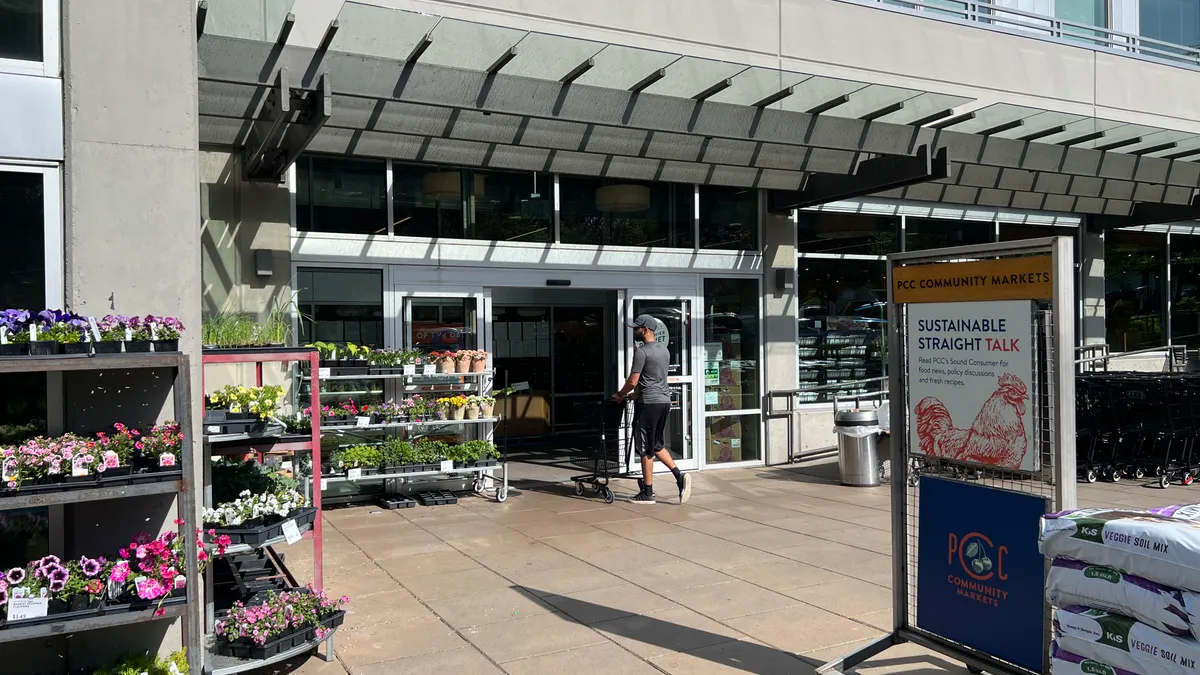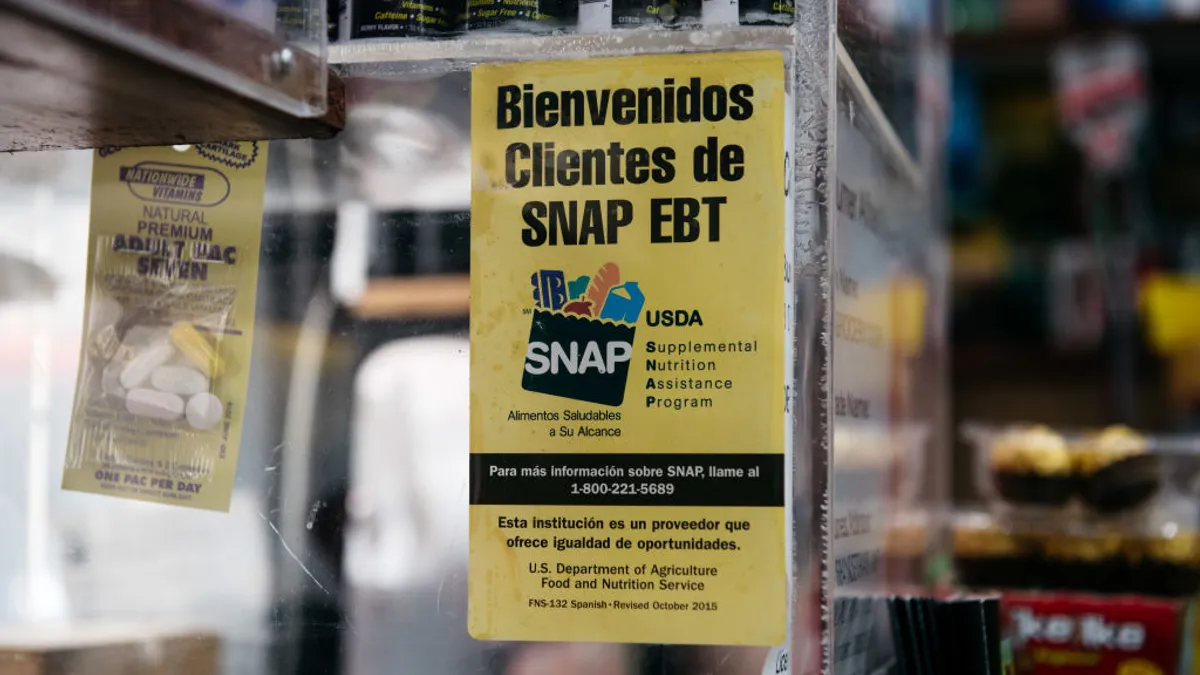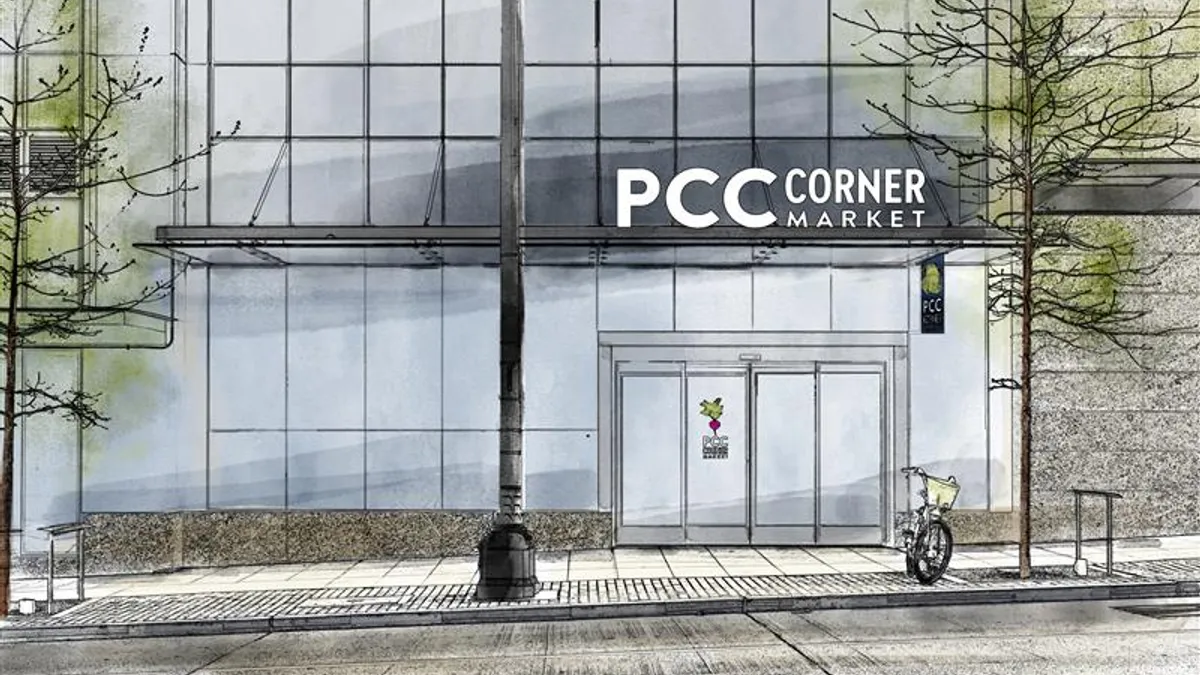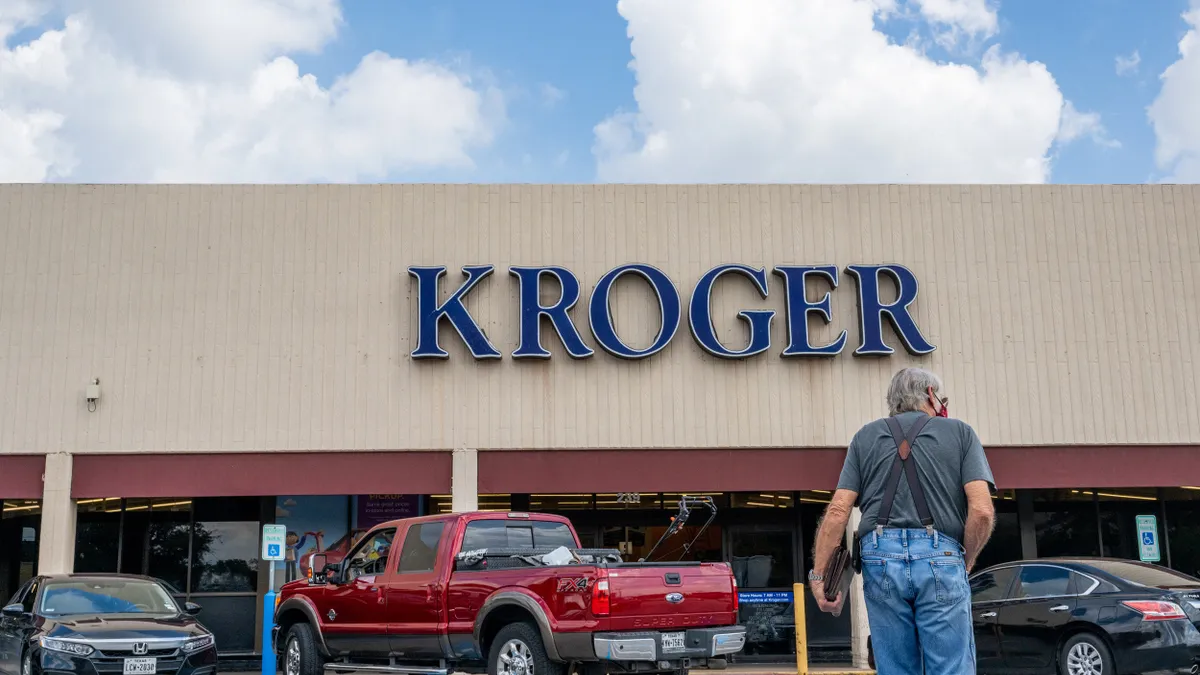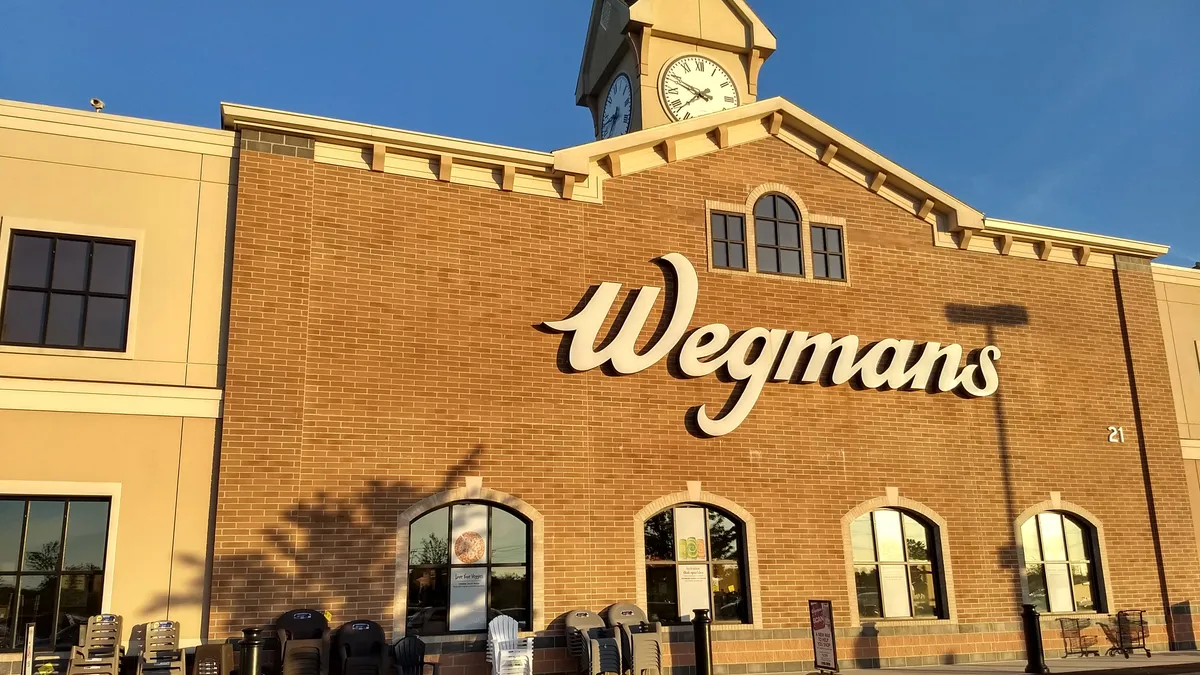For years, PCC Community Markets made industry headlines for opening green-certified stores, switching to compostable packaging, banning BPA in its receipts and other leading wellness and sustainability initiatives.
But in the past few years, the country’s largest cooperatively owned food market — a grocer that prides itself on being a model employer, community leader and corporate citizen — has generated headlines for different reasons.
In 2020, in the thick of the pandemic, CEO Cate Hardy left the company after five years at the helm. Her replacement, Kroger veteran Suzy Monford, lasted just eight months after sparking controversy because of her opposition to Seattle’s hazard pay ordinance. Spurred by the co-op’s perceived hostility toward additional worker benefits, two store employees successfully ran for election to the company’s board, and workers have continued to pressure PCC to live up to its virtuous image, recently holding a rally for better pay outside the co-op’s downtown Seattle store.
The difficult job of steadying the business and bringing it back in harmony with its workers and the community has fallen to Krishnan Srinivasan, who became PCC’s president and CEO early last year after nearly four years as its chief financial officer. A former executive with Amazon and Microsoft, Srinivasan brings big-business experience to the top role. He also has deep ties to PCC, having been a member of the cooperative for roughly 25 years.
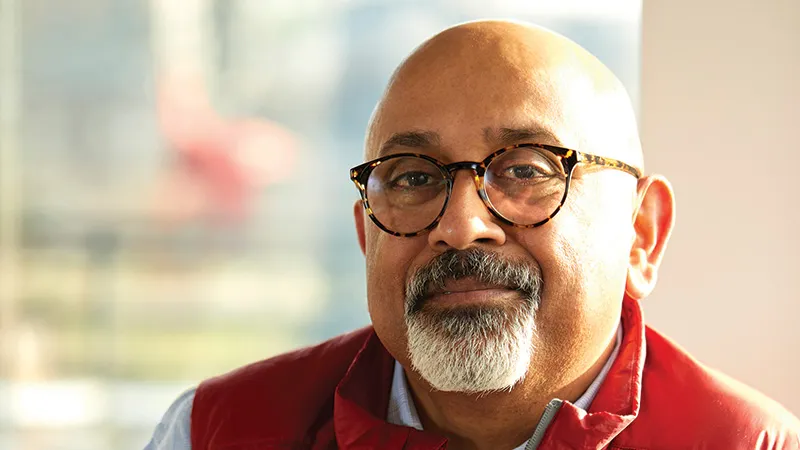
Despite what his years spent at some of the world’s leading tech companies might indicate, Srinivasan doesn’t see digital innovation as the main way forward for PCC. Rather, he believes the company, which is celebrating its 70th year in business, will grow by sticking to its mission and doing a better job of communicating that mission to its shoppers.
Srinivasan shared his thoughts about PCC’s expansion plans, what it takes to be a modern specialty grocer and why the company is resonating with younger shoppers in a recent interview with Grocery Dive.
This interview has been edited for length and clarity.
GROCERY DIVE: You’ve been a longtime PCC member. How does that influence how you run the company?
SRINIVASAN: There are a few memories that always stick with me. One of them is from the very first time I walked into our old Kirkland store, which is where [my wife and I] became members. Even to this day, I can recollect the smells and the feel of being over there. Later, after we had children, it was them being able to get a free piece of fruit and leaving the store with that sense of happiness.
I think I've always been sold on the notion of how cooperative principles translate into the values and especially the values of kindness and how people treat each other. Being part of something that's more than just buying groceries — that has always stayed very close to me.
GROCERY DIVE: PCC has gone through a few abrupt CEO exits over the past few years. What effect has that had on the company, and how have you worked to stabilize the business?
SRINIVASAN: We lost a lot of valuable time during an incredibly important period. We lost Cate [Hardy] at the beginning of COVID, and I think losing Suzy [Monford] in the middle of 2021 meant that we were in the thick of a lot of early COVID fallout, and I think we lost a lot of time in making progress on things.
But at the same time, I knew from day one I could not rush the process of slowing down enough to listen to the organization, create a sense of trust in people that they could be heard, that we were going to get through the next year or two years or whatever with stability, and with a sense of unity and holding true to our values. I spent a lot of time on that.
GROCERY DIVE: What are your top priorities for PCC at this point?
SRINIVASAN: The way I like to describe our path forward, whether you want to look at it a year out or five years out, is that from a strategic standpoint there are four pillars that define what we do. We want to reach more people. We want to do more good in our communities. We want to be a great place to work and we want to operate excellent stores.
GROCERY DIVE: What needs to happen to reach more people, specifically?
SRINIVASAN: When I look across all market areas that we serve here in the Pacific Northwest, we don't have what I would consider to be our rightful share of shoppers and members. I think part of this is because we can do a lot better in saying why PCC is different. Does “Community Markets” adequately and effectively convey the notion that we are a co-op? Does it convey the triple bottom line that we adhere to in terms of people, planet and profit? Does it convey the standard that PCC shoppers know to expect in our stores? For the community that has been with us for the last 70 years, that's a given. But the demographics are changing.
As newer and younger shoppers come in, one thing that we do know is that a lot of these shoppers care about where their dollar goes, not just in terms of purchasing good food, but also knowing that the food they purchase and the money that they put towards that definitely have a purpose behind it.
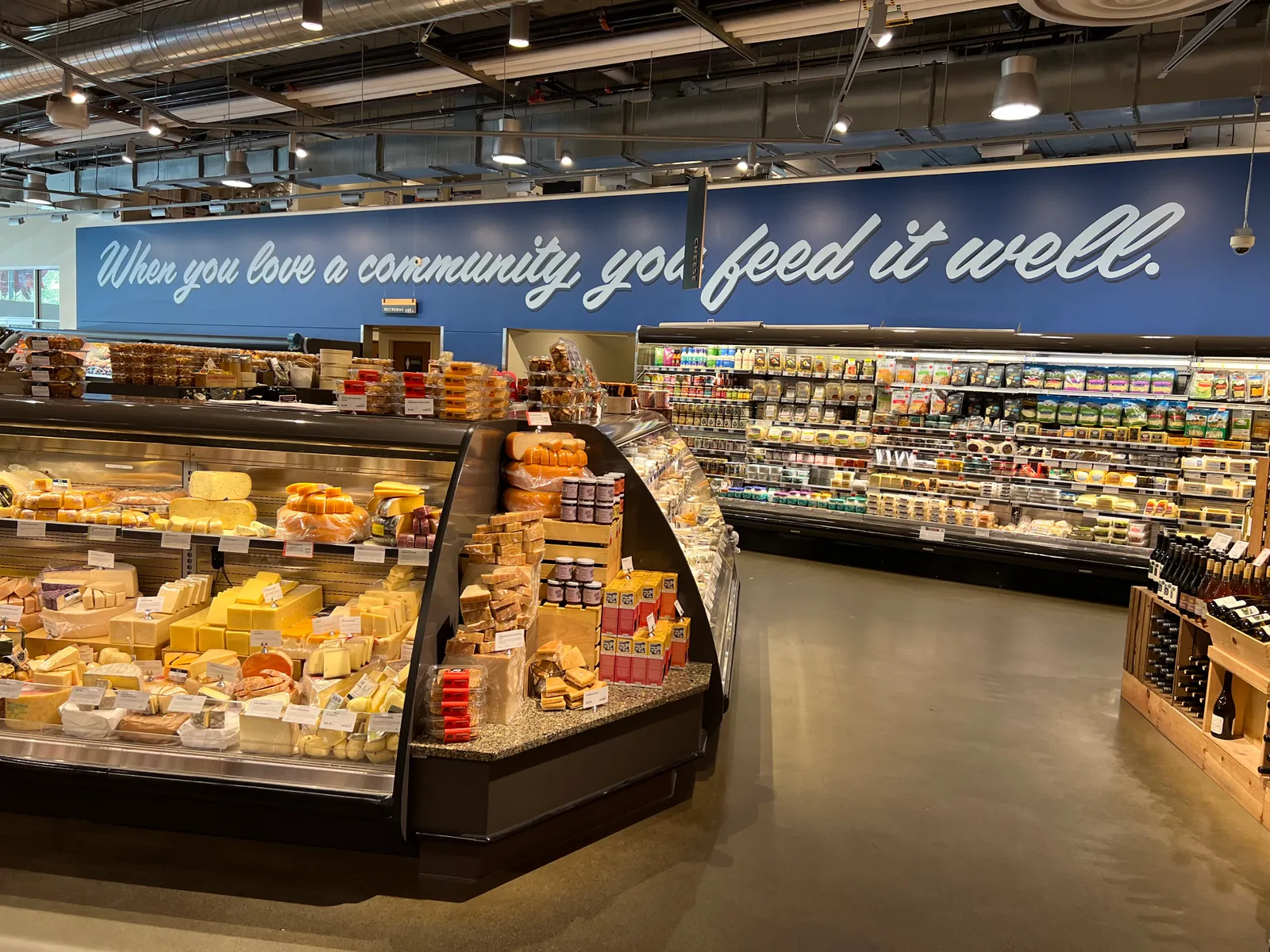
GROCERY DIVE: It sounds like a strategic focus for PCC is doing more to communicate how it’s different. Are there any examples you could cite of how the company is trying to accomplish this?
SRINIVASAN: One of the things that we're doing this year is to have very specific hyper-local community boards that talk about what that store is doing in its community. How much did that store contribute to a food bank? What kind of events did that store support or will be supporting? Those kinds of statistics will be available for people to see as they check out in a nice visual format, which creates a much greater sense of why that store matters in that community.
GROCERY DIVE: Traditional grocers, discounters and club stores are all sourcing natural, organic and local products. How can specialty grocers stand out these days?
SRINIVASAN: I spend a lot of time asking myself what a specialty retailer means, because we don't meet any definition that I consider, or the industry considers, to be “specialty.” With many other specialty retailers, the customer engagement pretty much ends when they bag their groceries and walk out of the store. I would like to think that for us, that's when it begins. The community and the environment part, the planet and the people part: That is what differentiates PCC as an organization and as a co-op from a specialty retailer.
Now, there is a lot more that we can do. And it's not so much about innovation, although there is a fair bit of that. It's a lot more about tapping into that sense of purpose and ethical sourcing that we know matters for a lot of people today. Gen Z cares more and more about where their dollar goes and they want to know that they're investing in organizations that care about labor practices, that care about commitment to equity and inclusion, and the list goes on. And those are all core to how we operate.
There's so much that we do to showcase and support local sourcing. Those kinds of elements are what sets us apart versus whether we have the coolest app or the fanciest digital Just Walk Out kind of technology.
GROCERY DIVE: You have a background at a number of notable technology companies, including Microsoft and Amazon. Do you see an opportunity to bring more technology into PCC?
SRINIVASAN: I am not a believer in technology for the sake of technology. I have to balance that point of view with also not being the last one in the room to know that there's been a technological shift, and I'm fairly confident that my experience will keep me from doing that.
We look at ways in which we can engage with our shoppers more and I think that has incremental technology impacts. A lot of our technology investments are on the back end because we have seen a fairly significant expansion in our footprint. We were 10 stores six years ago and we're 16 stores today. That's a pretty sizable increase and the kind of sophistication that you need from a systems and processes standpoint, that is our focus.
GROCERY DIVE: What about consumer-focused technology in areas like checkout?
SRINIVASAN: We’ve made a significant investment in self-checkout. And it was a weird flip-flop. Prior to COVID, our CEO felt that was not part of our brand and we took it out of stores. Then COVID happened so we put it back in. And we've seen what the industry is seeing, which is that more than half of our transactions go through [self-checkout], while at the same time, people do enjoy the personal experience of checking out with our cashiers.
GROCERY DIVE: PCC recently joined the DoorDash marketplace and is also on Instacart. Does the company plan to own its own online shopping platform? What are your priorities in e-commerce right now?
SRINIVASAN: Given our size and given the capital constraints that we operate under, we're not seeking to be the owner, creator and innovator on technology platforms. We will gladly use what we can purchase and implement and what best serves our customer needs.
Not to use an increasingly worn-out cliche, but we think omnichannel, too. Omnichannel means different things for different people, and for us, omnichannel needs to cover not just the front-end shopping experience, but the back-end purpose experience.
Think of an experience where you can come in and buy your avocados using your app on PCC, and you're immediately notified that some portion of the proceeds from the purchase of these avocados could go towards potential recipients who are doing more to facilitate regenerative agriculture, organic farming, local sourcing etc., etc. Where would you like your dollar to go? That allows people to engage deeper into our purpose than they currently do today.
GROCERY DIVE: PCC currently has a restaurant inside one of its stores. Do you see an opportunity to put more restaurants inside company stores?
SRINIVASAN: At this point, probably not. The Cove, which is what we branded the restaurant at our Ballard location, opened right before COVID. And before we could learn, look at the data, optimize, experiment and do all the things that could have gotten us to know how that model works for us, COVID hit and we had to shut it down.
We just reopened it, and we're trying to start learning again in a fundamentally different environment. I will say this about the restaurant business: It's labor-intensive. There is enough in terms of a labor challenge for running a grocery business without bringing the labor challenges of a restaurant business into it. I am pretty certain that we are not going to invest in retrofitting any of our existing stores with a restaurant because that model does not quite pencil out as a long-term source of profit.
But one thing that we are deeply committed to is freshly prepared food, both hot and cold. And we are looking at all the ways in which we can make that a lot more accessible.
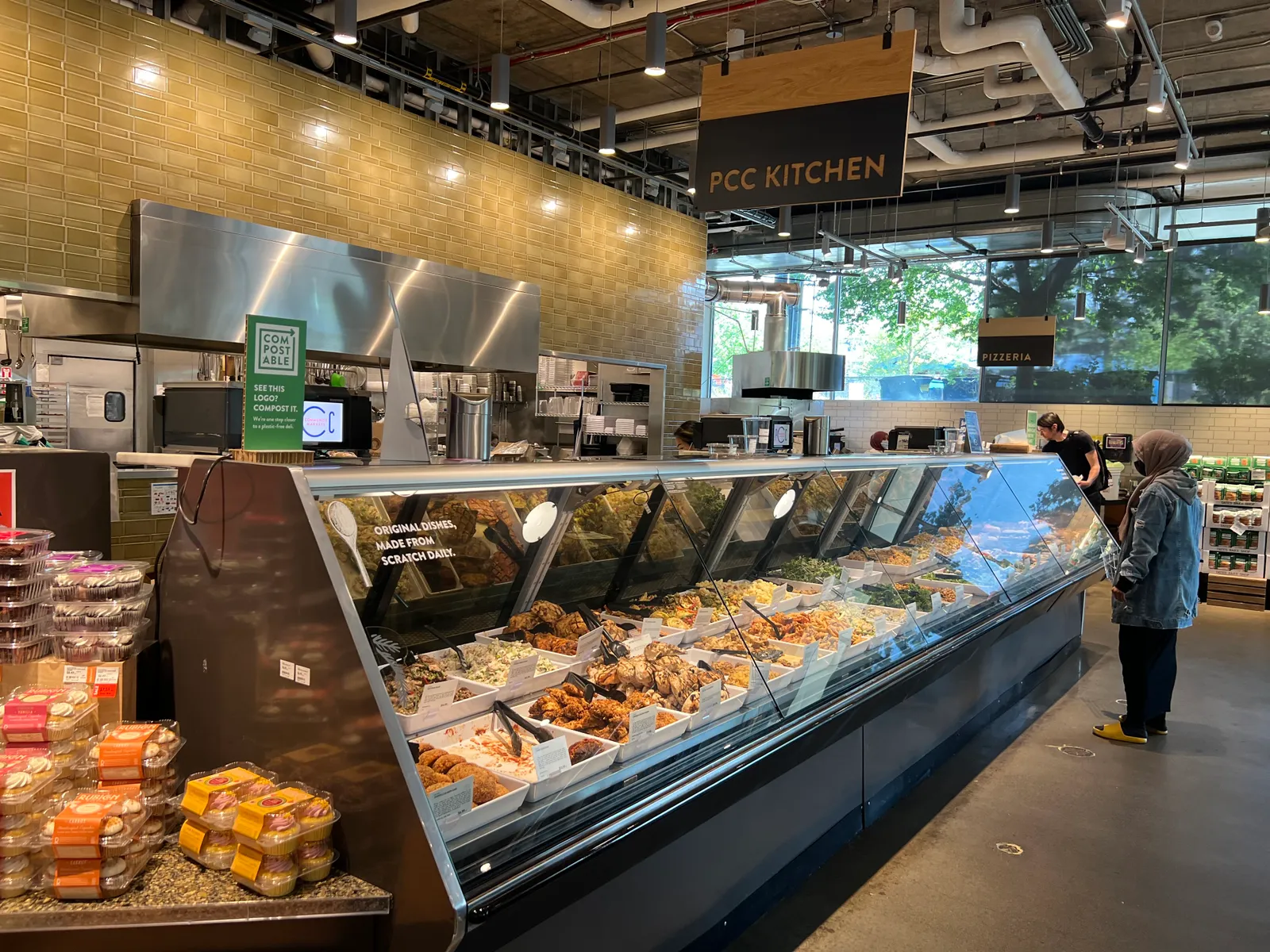
GROCERY DIVE: The company’s union contract for its workers is up at the end of this year, and some are saying they don’t feel the company is paying enough. How would you characterize PCC’s relationship with its frontline workers at this point?
SRINIVASAN: Despite what you read in the press and despite what we see in terms of pickets or people stating opinions in front of TV cameras, we actually have a very strong and positive relationship with our more than 1,800 employees. That is not to say that we can't do better. And certainly, having gone through the ravages of COVID and the subsequent inflationary period, Seattle is not an easy place to live. It's not a cheap place to live.
I think a lot of what you're hearing in the court of public opinion actually comes down to the fact that we bargain our contract a little out of step with the rest of the local grocery businesses, which we call the Allied Contract. The Allied Contract was settled last year, and so we are a year behind in some respects.
Landing this contract in a way that reflects our care for our employees is the leadership team's No. 1 priority. And we've started early. We've started now and we aim to be done by the end of the year. You'll find a lot of people who definitely want to see us land a better contract than what they have, and that will certainly happen.
GROCERY DIVE: What expansion opportunities do you see ahead? Do you see any opportunity to move outside of the Seattle market?
SRINIVASAN: We look at expansion only through the lens of our vision, mission and values. We will look at places where PCC can uniquely provide our quality of food to a community that does not experience it. We will look at our ability to have an impact on the community by creating jobs, by participating in food banks. And we will do it only if it does not create stress in the rest of the organization.
Given that we operate in this very local environment, people from existing stores are needed to go and help open new stores. It's not like how Albertsons or anyone else goes and does national store openings. Ours is much more personal. So those are the lenses through which we look at things and we'll keep looking at them.
I would find it very hard to see that model going past even the general Seattle area. There's certainly some pockets that would benefit from us being there, but it's got to meet these other criteria that are mostly mission-driven.



